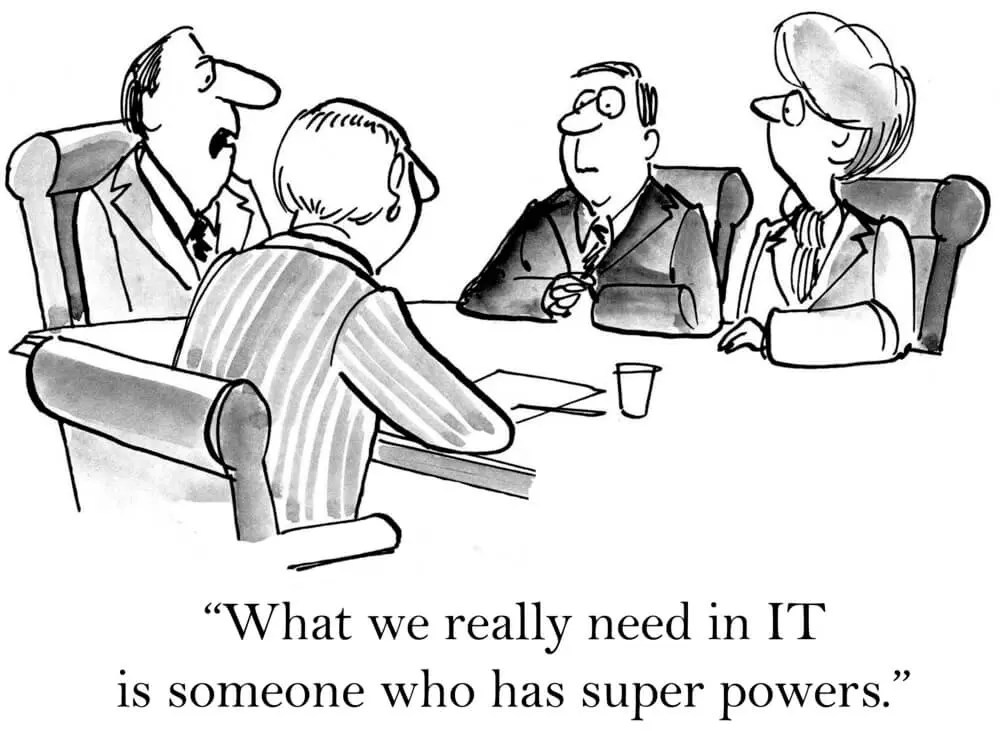Technology is playing an increasingly central role in organizational strategy and performance, and, as a result, CIO responsibilities have evolved.
In the modern enterprise, IT departments have become core drivers of business value. While CIOs and their teams were once considered a strictly technical department, that role has shifted to a more strategic one.
According to the CIO Outlook 2021 Report of 100 Fortune 500 CIOs, more than half of CIOs believe that they will have more influence across their organizations in 2021. Those surveyed reported that their impact will be greater felt in the areas of customer experience, operations, innovation, and post-pandemic relief strategies.
Below, we’ll look at how CIOs’ responsibilities are adjusting to today’s fast-paced, digital-first world.
How CIO responsibilities are changing in the digital age
Many organizations are realizing that in order to become digital leaders and digital-first organizations, technology must become a priority within the organization.
Digitization, disruptive innovation, and digital transformation are behind many of today’s organizational changes, so it makes sense that CIOs must play a more central role in the organization.
However, this does not merely mean deploying and maintaining new tools and systems. It also means fully adopting technology, leveraging that technology to create new forms of value, and using it to create a competitive advantage.
Here are a few areas where CIOs can partner with other business leaders and use their technical expertise to add more value to the organization:
Digital and organizational strategy. In the modern economy, digital strategy and organizational strategy go hand-in-hand. In many instances, digital capabilities and innovations actually fuel an organization’s growth and its ability to compete. Since digital strategies depend on digital technology, it is only natural that digital leaders, such as CIOs, contribute to these endeavors.
Digital transformation. Digital transformation refers to the use of digital technology to enable new digital capabilities, create new forms of business value, and enhance organizational performance. Naturally, successful digital transformation depends heavily on the effective use and adoption of digital technology. CIOs and their teams, therefore, must be ready and able to lead those efforts.
Digital adoption. Digital adoption, in the context of the workplace, refers to the integration of technology into the work environment and employees’ use of that technology to its fullest extent and for its intended purpose. CIOs and IT leaders must work closely with other departments, such as HR, to ensure that their organizations can adopt new tools and use those systems to fuel digital initiatives.
In short, we are witnessing the rise of digital leadership – the idea that digital technology and digital leaders must play a pivotal role in driving a business forward.
Qualities CIOs need to lead
Since CIO responsibilities are changing, they will also need to acquire new skills and capabilities to be successful.

Gartner has even suggested that CIOs will be responsible for culture change as chief HR officers in 2021. The reason for this, claims Gartner, is that culture can accelerate digital transformation and CIOs can “reinforce a desired culture through their technology choices.”
While every business is different and will place different requirements on its CIO, there are a few traits that can help IT leaders drive better business outcomes:
A business-oriented mindset. Since CIO responsibilities are expanding to include business initiatives, it is crucial that IT leaders learn to think in business terms, not IT management. As senior executives who help to create business value, CIOs must therefore adopt mindsets that revolve around business strategy, financial data, management, and other generalized business functions.
Leadership. Leadership is a nuanced term that carries different connotations for different people, and there are certainly many diverse styles of leadership. However, the bottom line for CIOs as leaders is that they must be willing to stand up and take ownership of a broader range of projects, initiatives, and programs.
People skills. Communication and other soft skills are mandatory for every manager and leader. As IT becomes more integrated within the organization, it becomes increasingly important for IT leaders to be able to communicate effectively with other departments, leaders, and managers. People skills, after all, have a direct impact on employee morale, engagement, and productivity, among other things.

Agility. Today’s business world moves quickly, and many companies are recognizing the importance of business agility and employee agility. It is equally important, however, for digital leaders to think and move quickly. That ability will enable IT departments to respond efficiently to changing circumstances, which will, in turn, improve the organization’s agility.
Creativity and vision. For years, disruptive innovation has fueled change in the marketplace. That innovation has catapulted the most creative companies to success, while less innovative companies have fallen behind or, in some cases, become obsolete. Since the economy is evolving more rapidly with each passing year, it could even be argued that creativity is not only advantageous, it is essential for companies that want to stay competitive.
Above all, CIOs must be willing to commit to their new role, not just as IT managers, but as business leaders.
In the years ahead, we can expect to see even more digital transformation across the entire global economy. IT leaders, therefore, should fully embrace their new responsibilities. Those that do will stand a much better chance of helping their organizations become digital leaders.


